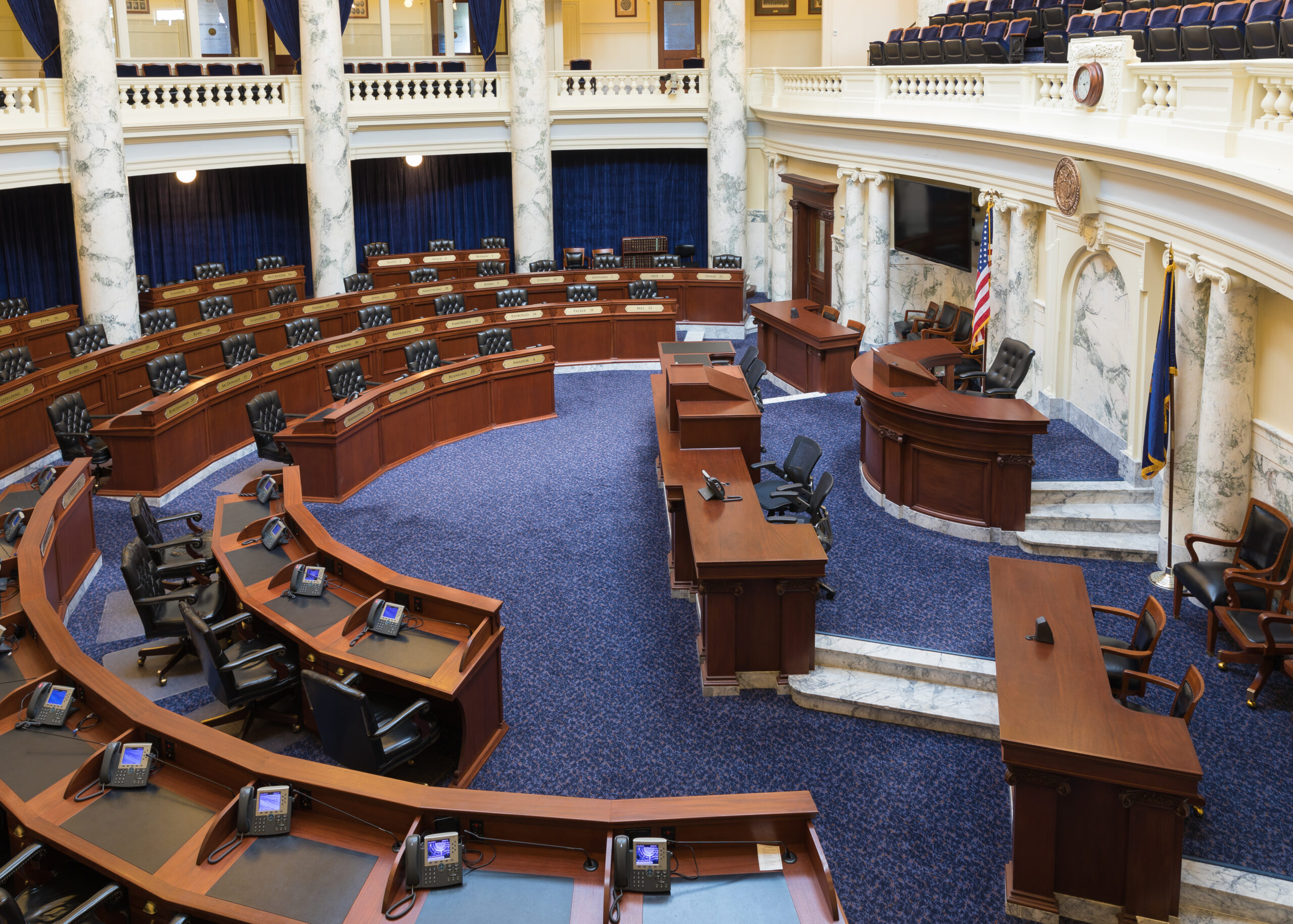A proposed constitutional amendment that would have made qualifying initiatives to Idaho’s statewide ballot much more difficult has failed, thanks to Republican defectors in the Gem State’s House of Representatives.
An attempt to approve Senate Joint Resolution 101 — dubbed the “Silence the Voters Amendment” by critics — fell eight votes short yesterday, which means the proposed constitutional change won’t be sent to Idaho voters.
Here’s a quick synopsis of the amendment from the Idaho Conservation League, which opposes it, like NPI: “Senate Joint Resolution 101 would require signatures from 6% of eligible voters from all thirty-five legislative districts, instead of the current requirement for 6% of voter signatures from eighteen districts. Under the proposal, if a single district fails to get enough signatures, the initiative would not qualify for the ballot. Idaho already has one of the most strenuous ballot initiative processes in the country and SJR 101 would further restrict it.”
“In all honesty, most of us believed it would be a long shot to defeat this amendment on the House floor,” said Reclaim Idaho’s Luke Mayville. “But we tried anyway. We left it all on the field, and we pulled off a massive upset.”
“Over a century ago, a populist movement swept the country and established the rights of initiative and referendum in Idaho and in states across the country,” he continued. “It’s important to recognize that today there is an anti-populist, anti-citizen agenda, advanced by national special interest groups, attempting to eliminate those same rights. In Arkansas, Ohio, and elsewhere, initiative rights are being rolled back this very moment.”
“Here in Idaho, we are defending our rights.”
“In the same way that the citizens of Idaho stood up against the school-voucher agenda and defended our public schools, we have now successfully beat back the attempt by special interests to take away our initiative rights.”
Representative Mark Sauter, a Republican who represents Sandpoint, was among the nays. Sauter “told the House that he’s received an ‘overwhelming’ number of calls and emails opposing the resolution,” the Idaho Statesman reported.
The Statesman’s Ryan Suppe added this observation: “During public hearings on the proposal, Idaho residents from across the state slammed it.”
But Republican legislative leaders didn’t listen. They tried to push it through anyway. In the Senate, they were successful: twenty-seven senators voted for it, while only eight were opposed. But in the House, the outcome was different. Bicameralism just helped save the people’s initiative power in Idaho!
The roll call was as follows:
Roll Call
SJR101
Initiatives, signatures
3rd Reading & Final Passage
3/30/2023Ayes: 39; Nays: 31 (two-thirds threshold required for passage)
Voting Aye: Alfieri, Andrus, Barbieri, Boyle, Cannon, Cornilles, Crane (Jaron), Crane (Brent), Dixon (Sage), Durrant, Ehardt, Ehlers, Gallagher, Handy, Hawkins, Healey, Hill, Holtzclaw, Horman, Kingsley, Lambert, Mendive, Miller, Mitchell, Monks, Palmer, Pickett, Price, Redman, Scott, Shepherd, Skaug, Tanner, Vander Woude, Wheeler, Wisniewski, Wroten, Young (Cannon), Mr. Speaker
Voting Nay: Allgood, Berch, Blanksma, Bundy, Burns, Cheatum, Chew, Clow, Dixon (Chenele), Erickson, Furniss, Galaviz, Gannon, Garner, Green, Lanting, Manwaring, Mathias, McCann, Mickelsen, Nash, Necochea, Nelsen, Petzke, Raybould, Raymond, Roberts, Rubel, Sauter, Weber, Yamamoto
The Republicans who voted no were:
- Chris Allgood, 11th District
- Megan Blanksma, 8th District, the House Majority Leader
- Matthew Bundy, 8th District
- Richard Cheatum, 28th District
- Lance Clow, 25th District
- Chenele Dixon, 24th District
- Marco Erickson, 33rd District
- Rod Furniss, 31st District
- Dan Garner, 28th District
- Gregory Lanting, 25th District
- Dustin Manwaring, 29th District
- Lori McCann, 6th District
- Stephanie Mickelsen, 32nd District
- Jack Nelsen, 26th District
- James Petzke, 21st District
- Britt Raybould, 34th District
- Jerald Raymond, 31st District
- Mark Sauter, 1st District
- Jon Weber, 34th District
- Julie Yamamoto, 11th District
Many Republicans voting no did so in tandem with their seatmate. (Idaho, like Washington, has multi-member legislative districts rather than House districts).
The failure of SJR101 is an important win for direct democracy in the Gem State. We congratulate all of the people and organizations that worked to defeat this bad constitutional amendment. It’s nice to get good political news out of Idaho!

